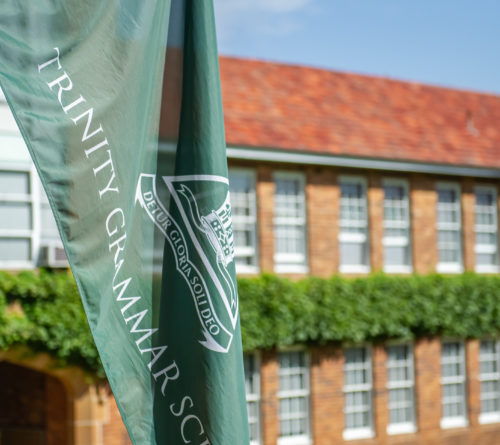Academic Focus
Student-centred learning and the Nationally Consistent Collection of Data on School Students with Disability (NCCD)
Trinity’s student-centred approach to learning prioritises the individual growth a student makes rather than comparative judgements amongst a cohort. One of the most significant expressions of this philosophy is Trinity’s commitment to providing all students, including those with diverse learning needs, with the very best educational opportunities. Staff work to make the School a valued, safe and dynamic learning environment where every boy, through challenge and support, can be successful. For students with additional needs, this involves understanding needs, strategising to meet these needs and designing both learning and assessment opportunities that offer equitable access to the curriculum and equitable access to success.
Every year, all schools in Australia participate in the Nationally Consistent Collection of Data on School Students with Disability (NCCD). The NCCD process requires schools to identify information already available in the school about supports and adjustments provided to students with disabilities. These relate to legislative requirements under the Disability Discrimination Act 1992 and the Disability Standards for Education 2005, in line with the NCCD guidelines (2019).
Information provided about students to the Australian Government for the NCCD includes:
- year of schooling
- category of disability: physical, cognitive, sensory or social/emotional
- level of adjustment provided: support provided within quality differentiated teaching practice, supplementary, substantial or extensive.
This information assists schools to:
- formally recognise the supports and adjustments provided to students with disability in schools
- consider how they can strengthen the support of students with disability in schools
- develop shared practices so that they can review their learning programs in order to improve educational outcomes for students with disability.
The NCCD provides state and federal governments with the information they need to plan more broadly for the support of students with disability.
The NCCD has no direct impact on parents or students: there is no additional testing or surveying required. The School curates and provides existing data to the Australian Government in such a way that no individual student can be identified – the privacy and confidentiality of all students is ensured. All information is protected by privacy laws that regulate the collection, storage and disclosure of personal information. To find out more about these matters, please refer to the Australian Government’s Privacy Policy.
Further information about the NCCD can be found on the NCCD Portal.
If you have any questions about the NCCD collection at Trinity, please contact Renee Culgan, Director of TESS on 95816180.
Deborah Williams | Academic Dean
















